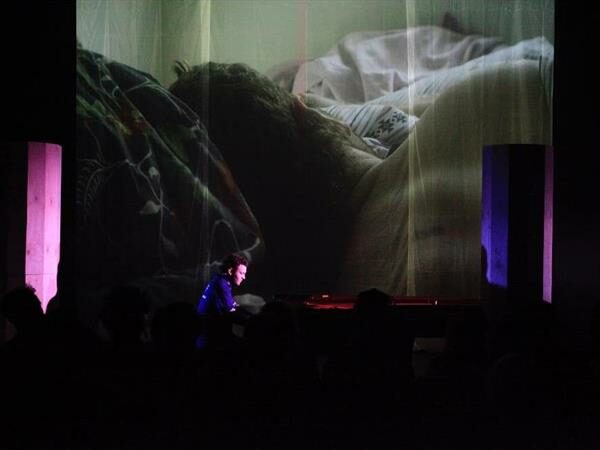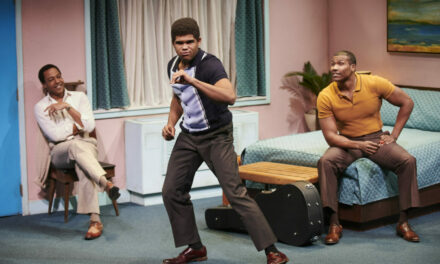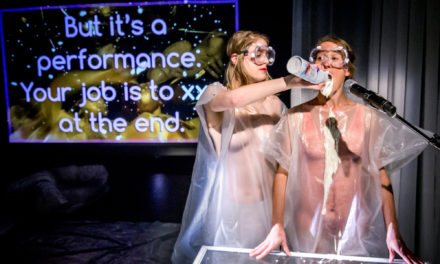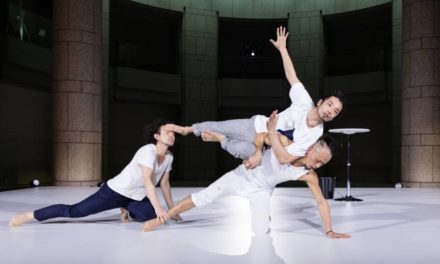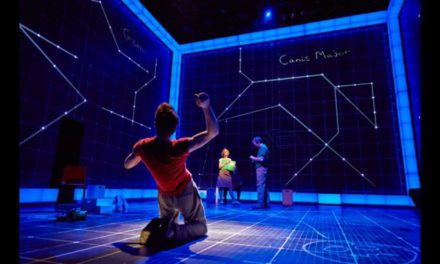Review: XXX Neon Sign, composed by Dan Thorpe, Rumpus Theatre.
More than perhaps any other instrument, the grand piano symbolizes the classical music canon and its rigid traditions. Placing such an instrument centre-stage conjures particular expectations for audiences: expectations Dan Thorpe thoroughly demolishes in XXX Neon Sign.
XXX Neon Sign is based on an epic poem by James Andre about working in a Brisbane porno shop. A work of “composed theatre”, XXX Neon Sign uses musical strategies to organize all aspects of the performance: the performer and the work itself are inextricably linked. Coined by Matthias Rebstock and David Roesner, Roesner describes composed theatre as where “the performance often is the work […] its authorship often more complex, collaborative and emergent.”
It’s hard to imagine anyone other than Thorpe performing XXX Neon Sign. It relies on his idiosyncratic style of piano-playing and the way he embodies the protagonist in Andre’s poem.
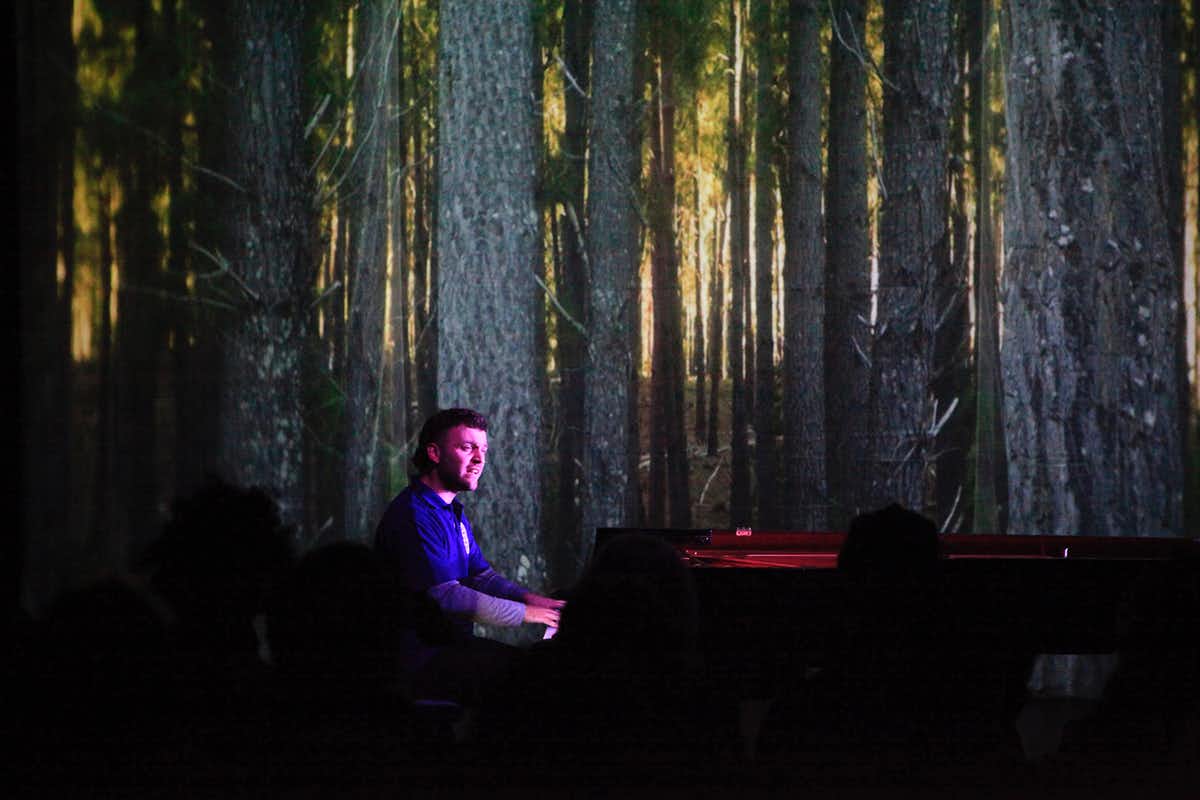
The grand piano symbolizes the cannon which XXX Neon Sign rejects. Jason Tavener/BIFEM 2019.
This concept of embodiment permeates Thorpe’s music. His use of scrolling graphic scores in earlier works such as false cognate and Pressure and Light place the emphasis on physical gestures and the way performers use their bodies to create sound.
In these compositions written for other musicians, Thorpe allows his musicians’ bodily autonomy and a greater degree of freedom. While avant-garde art music composers have sought more and more control over the bodies of performers throughout the 20th century and beyond, those working in experimental paradigms like Thorpe cede such control.
A physical performance.
Thorpe’s own physicality is explored in various ways in XXX Neon Sign. Thorpe intimately reaches into the body of the instrument, preparing the strings with a set of household keys; using an electromagnetic device, an “e-bow”, to warp the strings and create muted drones.
Angular, disjointed chordal figures, interspersed with the odd forearm cluster chord are prominent, with rhythmic complexity in both the spoken word and the piano lines.
Unlike the type of music one might associate with the products in the porno shop, there are many moments in XXX Neon Sign where the timbre becomes fragile and delicate – the e-bow’s drones create moments of profound stillness, while the use of keys on the piano strings creates some gorgeous microtonal harmonies.
Thorpe’s training as a classical pianist is most evident in his appropriation of waltz figures from the classical piano repertoire, played with a deliberate clumsiness, to accompany an anecdote about a “swaggering bogan”.
XXX Neon Sign explores ideas around Australian masculinity, heterosexuality, and class. A rather drab shop assistant’s uniform (design by Olivia Zanchetta) and Thorpe’s well-cultivated mullet effectively signifies the working-class aspect. We listen as Andre, a queer man, interacts with the porno shop’s customers, and we get an insight into the things men say when they believe they have a supportive audience.
While Andre’s descriptions of his interactions with customers contain plenty of dark humour, there is also poignancy and empathy woven throughout the text and in the nuances of Thorpe’s delivery.
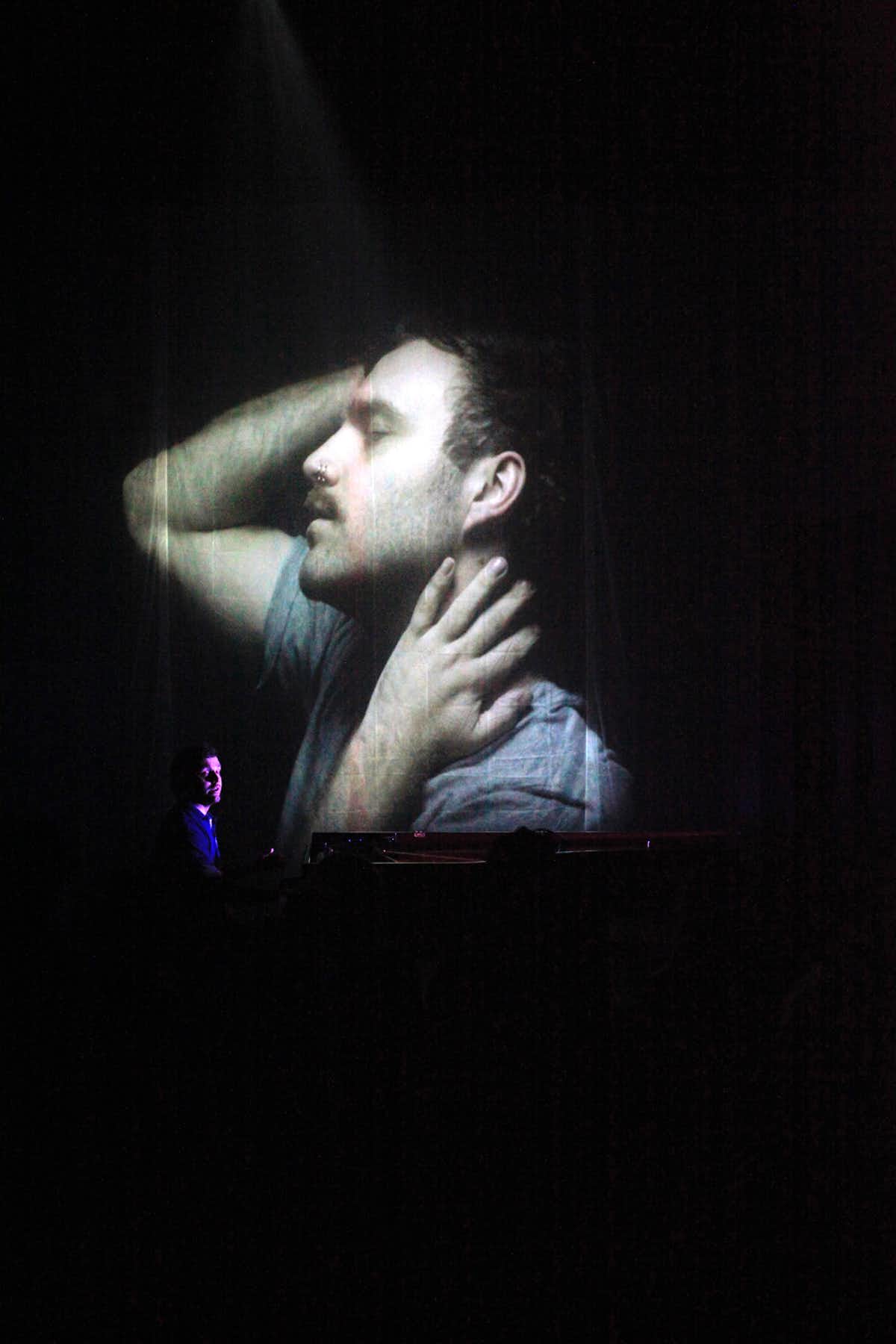
Videographer Gilbert Kemp-Attrill captures the sweeping and the subtle. Jason Tavener/BIFEM 2019.
Nudity – both live and in projection – might seem like an obvious artistic choice in the context of poetry about a porno shop, but here it is less about sex than about vulnerability. Videography of Thorpe’s body by Gilbert Kemp-Attrill is projected on the wall behind the piano. Thorpe’s movements range from sweeping balletic gestures to a subtle tensing of the jaw.
XXX Neon Sign is the first production for Rumpus Theatre – a new, independent theatre collective based in Bowden, just outside Adelaide’s city centre. This work is an excellent fit with the ethos of the collective: bold and innovative while portraying aspects of society rarely seen in mainstream artistic projects.
XXX Neon Sign is at Rumpus Theatre until September 21.
This article was originally posted at The Conversation and has been reposted with permission. To read the original article, click here.
This post was written by the author in their personal capacity.The opinions expressed in this article are the author’s own and do not reflect the view of The Theatre Times, their staff or collaborators.
This post was written by Melanie Walters.
The views expressed here belong to the author and do not necessarily reflect our views and opinions.

